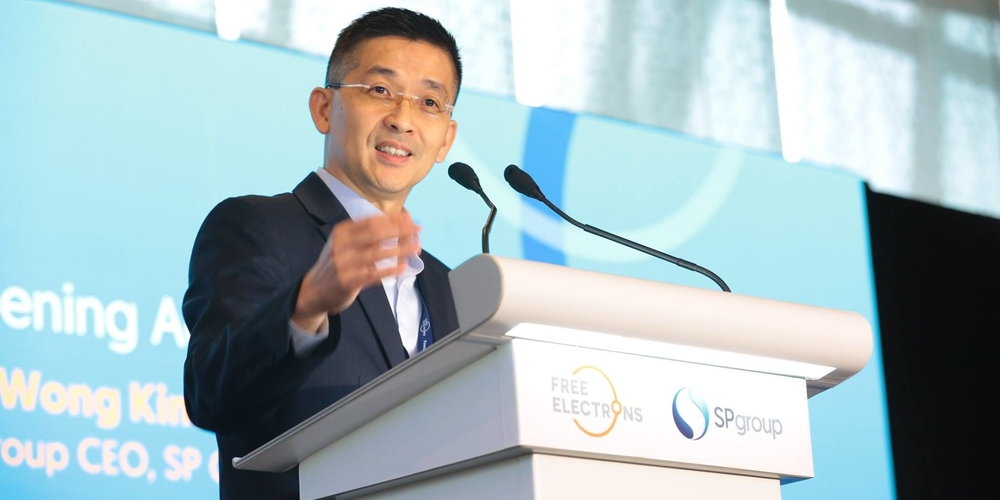Attorney-General Lucien Wong will be serving a second term after his reappointment and swearing in ceremony at the Istana on Tue (14 Jan).
Mr Wong, who has over three decades of legal experience, was previously the chairman and a senior partner of Singapore’s largest law firm Allen & Gledhill.
President Halimah Yacob, who officiated the ceremony on Tue, in a Facebook post the same day expressed her confidence in Mr Wong’s abilities to “discharge his duties fairly and with integrity”.
Mr Wong’s previous appointment as Attorney-General — a position that entails acting as a legal advisor to the Government — raised questions concerning potential conflict of interest, as he was previously the personal lawyer of Prime Minister Lee Hsien Loong.
Two opposition parties have highlighted the issue three years ago, as seen in the Singapore Democratic Party’s letter to then-President Tony Tan and the Workers’ Party (WP) urging the Government to address the matter in Parliament.
The SDP urged Dr Tan to revoke Mr Wong’s position as the Attorney-General, as Mr Wong, in the capacity of the Attorney-General, had allegedly refused to look into Dr Lee Wei Ling’s and Mr Lee Hsien Yang’s allegations regarding PM Lee’s purported abuse of power in the 38 Oxley Road dispute.
“Mr Lucien Wong was sworn in as AG on 16 January 2017. However, the fact that Mr Wong was the PM’s personal lawyer was revealed to the public only in June 2017. The President may not have been aware of this fact or its full implications.
“The association of Mr Wong with PM Lee prior to his becoming the AG has created an acute conflict of interest which cannot be ignored. It is important that President Tan does the right thing in the interest of the people of Singapore and revoke Mr Lucien Wong’s appointment as AG.
“Any further delay or refusal to act will cause even greater erosion of confidence in our public institutions,” the letter read.
Low Thia Khiang — then-chief of the WP — said that Mr Wong was representing PM Lee’s in his private dispute against his siblings over the Lee family’s private property, and then — as an Attorney-General — had the power to advise the Government and the Cabinet on matters related to said property and their late father Lee Kuan Yew’s will pertaining to the house.
“Is there also a conflict of interest here? Was this consideration taken into account when (Mr Wong) was appointed the AG? Can the PM clarify the role of the Law Minister and the AG in this matter, and explain to the House whether there’s any conflict of interest,” Mr Low asked.
Ms Lim, chairman of the WP, said regarding Mr Wong that it was “also well-known that he had been a senior partner in the same firm as the Law Minister for a long time”.
“They probably understand each other intimately,” she said.
Ms Lim also noted how Law Ministers in the past had expressly endorsed the need for there to be distance between the Government and the AGC.
“For instance, Prof S Jayakumar recently gave an interview for a book marking AGC’s 150th Anniversary. There, he recalled how when he was appointed Minister of State for Law in 1981, he was given an office located at the AGC, then in High Street.
“Now, there is no legal prohibition on appointing the Government’s close friends and former party comrades as the AG or Deputy AG … But, from a system point of view, do these appointments instil public confidence that the AGC will act independently in matters where the Government, or worse, the PM, has an interest in the outcomes?” she asked the House.
While Mr Wong’s predecessor V K Rajah SC — who was appointed Attorney-General on 25 Jun 2014 — ended his service as the Attorney-General on 14 Jan 2017 upon reaching the retirement age of 60 years, Mr Wong was 63 years old at the time of his appointment for the first term of his tenure.
As Mr Wong is 67 years old this year, he will be 70 at the end of his second term as the Attorney-General.
Article 35(4) of the Constitution stipulates that the Attorney-General may be appointed for a specific period and — subject to clause (6) — vacate his office at the end of the period.
The Attorney-General is permitted to hold office until the age of 60 years old. However, according to Section 35(4)(b), an Attorney-General who has reached 60 years of age may remain in office for a fixed period of time agreed between the Attorney-General and the Government upon the President’s discretion, if the President takes up the advice of the Prime Minister.




